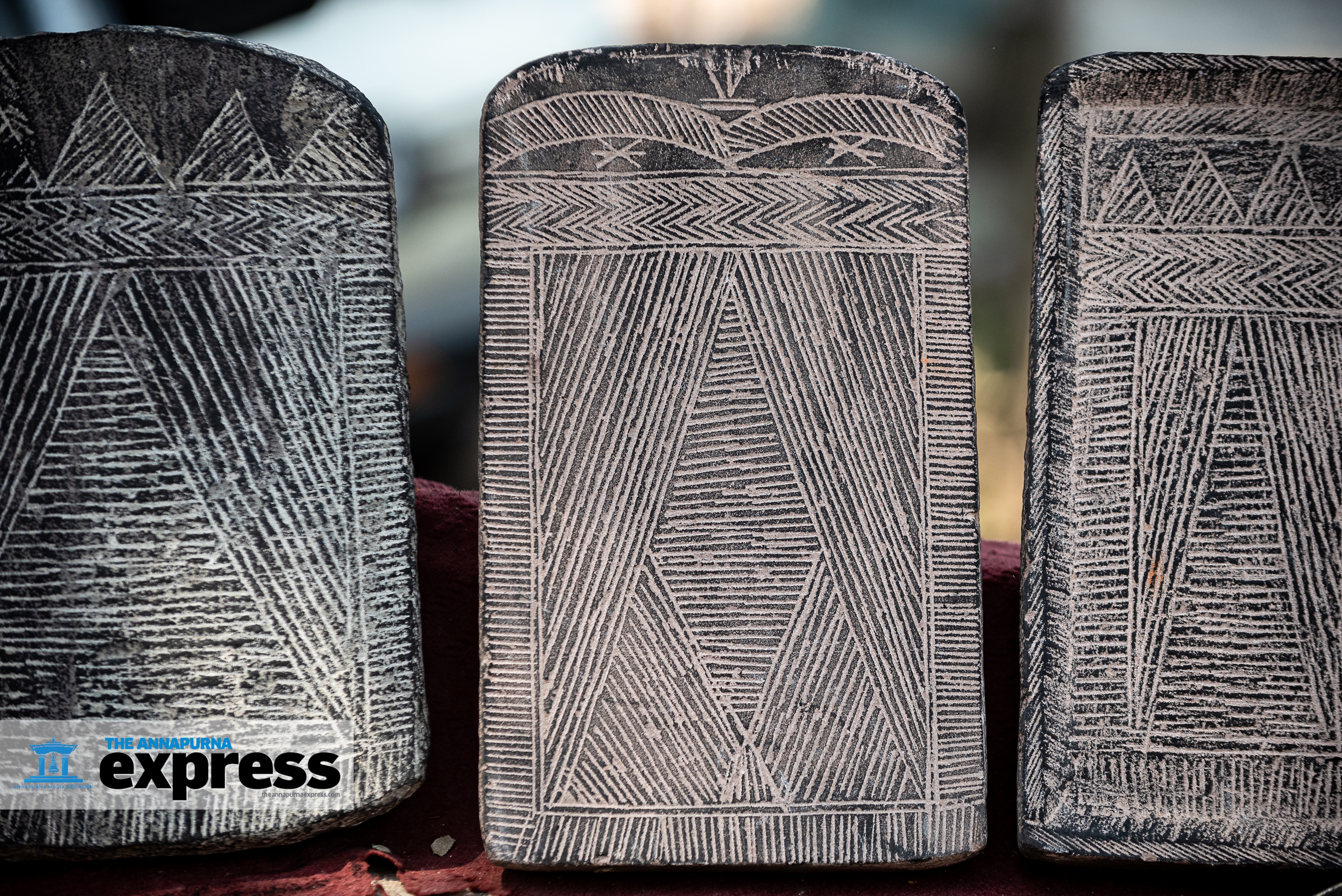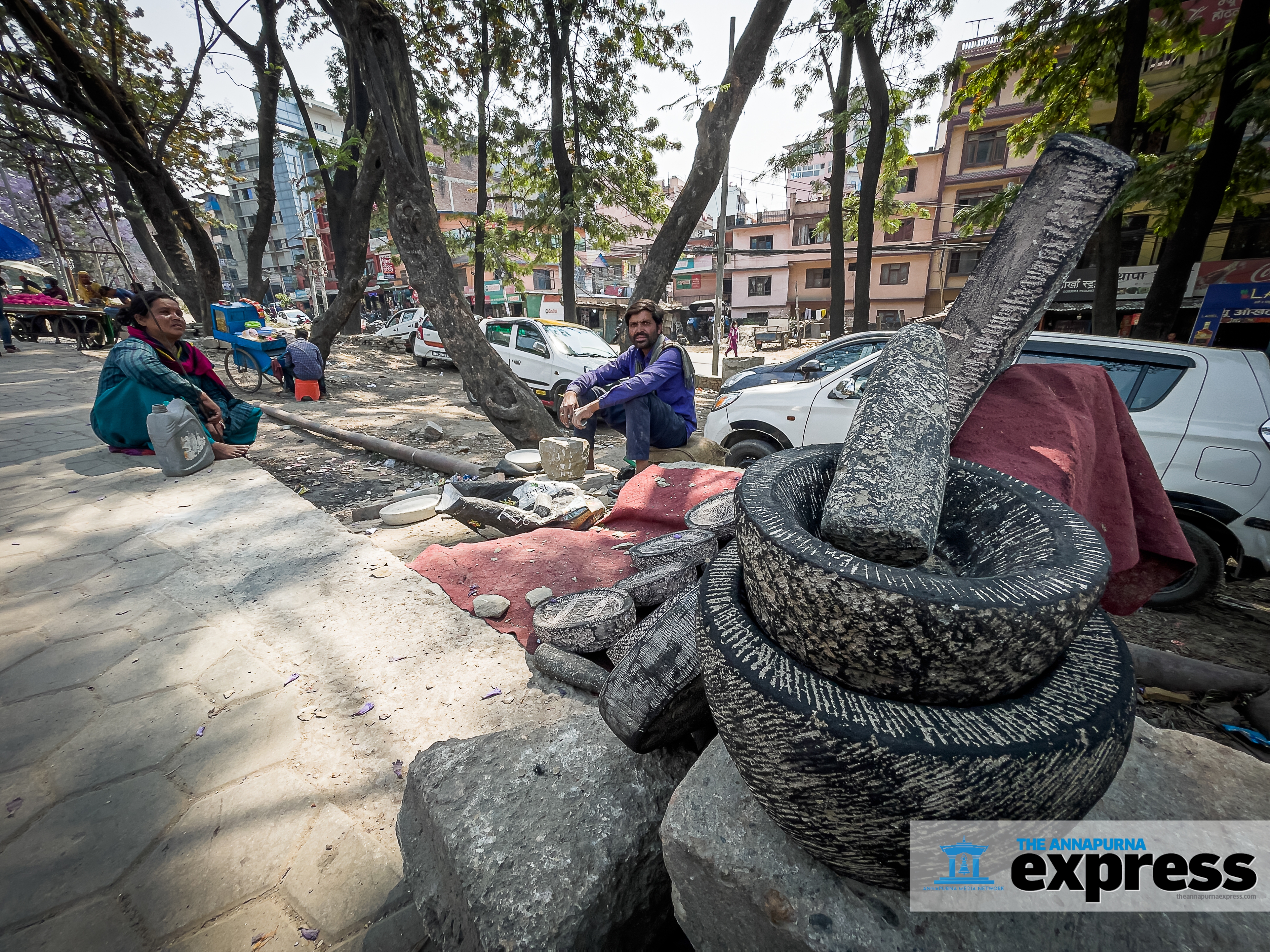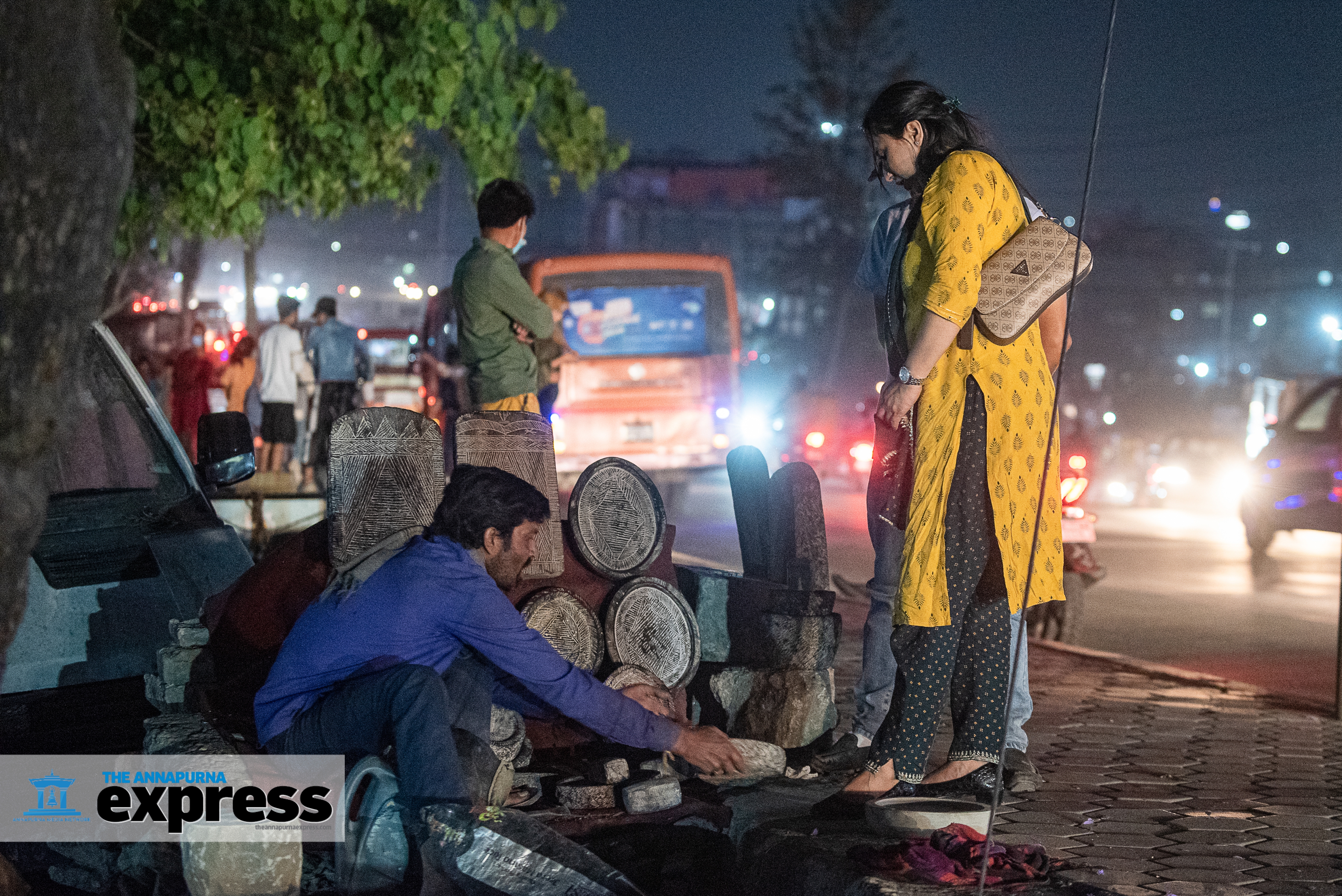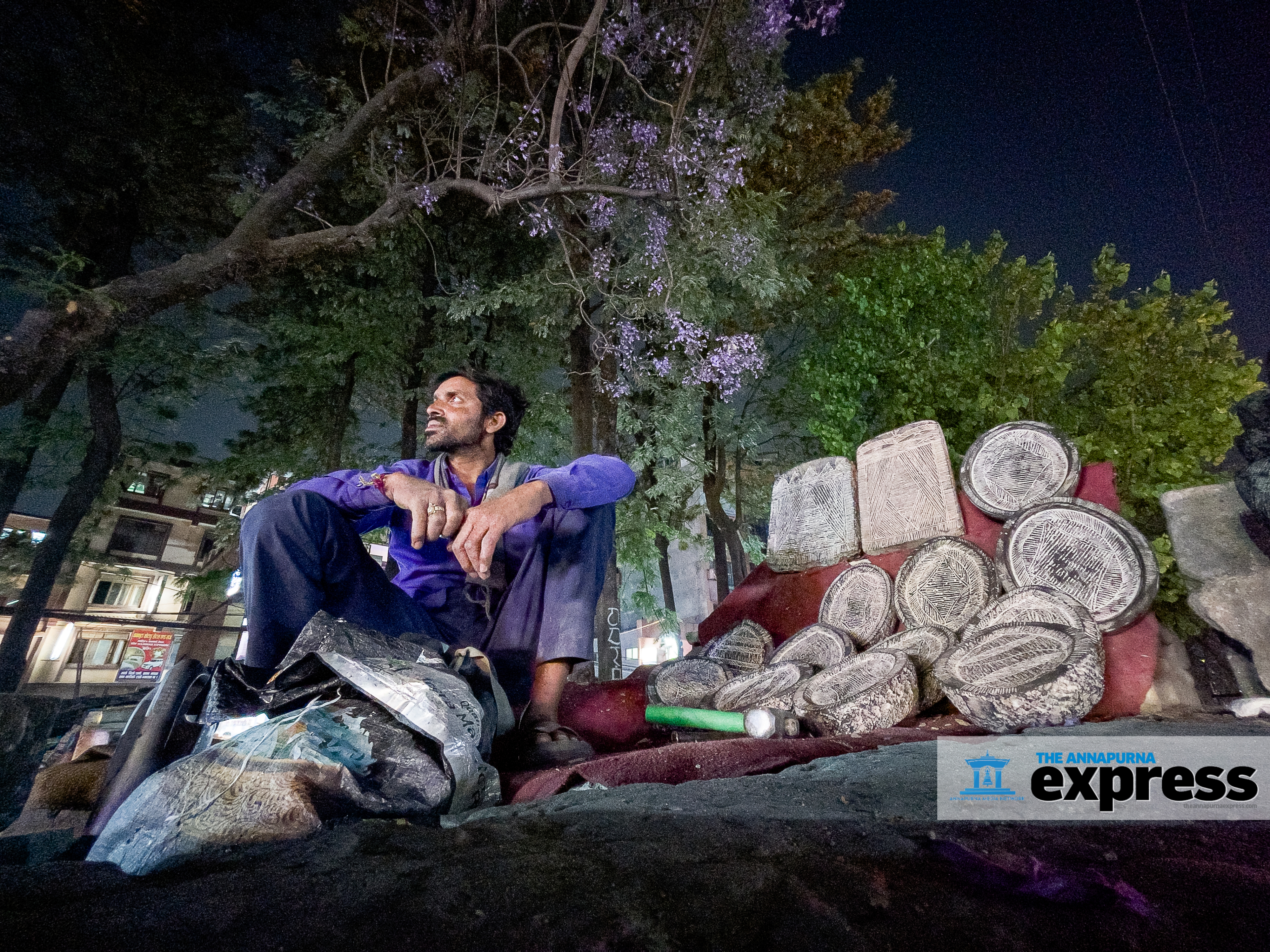Durgesh Kushbaniya sits in the shade of a blooming Jacaranda tree by the roadside at Chabahil, Kathmandu. Beside him are stone pestles—oval, rectangular—neatly arrayed on a makeshift display stand adorned by a maroon carpet.
The 33-year-old, who hails from Rupandehi district of Lumbini Province, has been making and selling pestles and mortars here for many years. He first came to Kathmandu some two decades ago with his young wife, who is from India. The couple has three children: one daughter and two sons, all of whom go to the Pashupati Secondary School nearby.
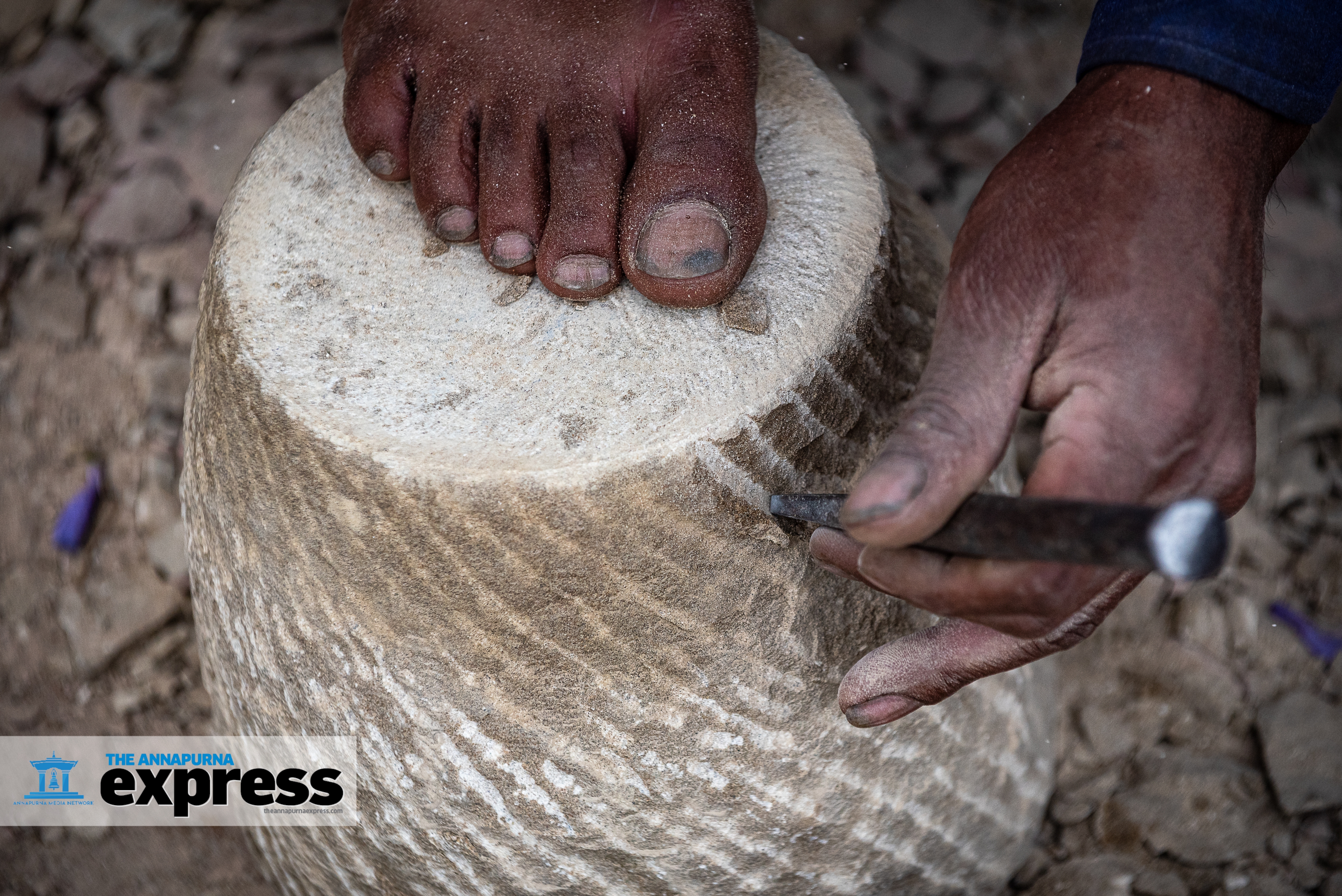
Kushbaniya says selling pestles and mortars is his only income, with which he feeds his family. He has rented a tiny room nearby. All five family members eat and sleep here.
Until a few years ago, the family used to live under a makeshift tent. Kushbaniya says he rented the new place after the municipal police of Kathmandu Metropolitan City removed the tent.
The room the Kushbaniyas live in barely fits two beds. But for the family, it is home—the only place they can afford.
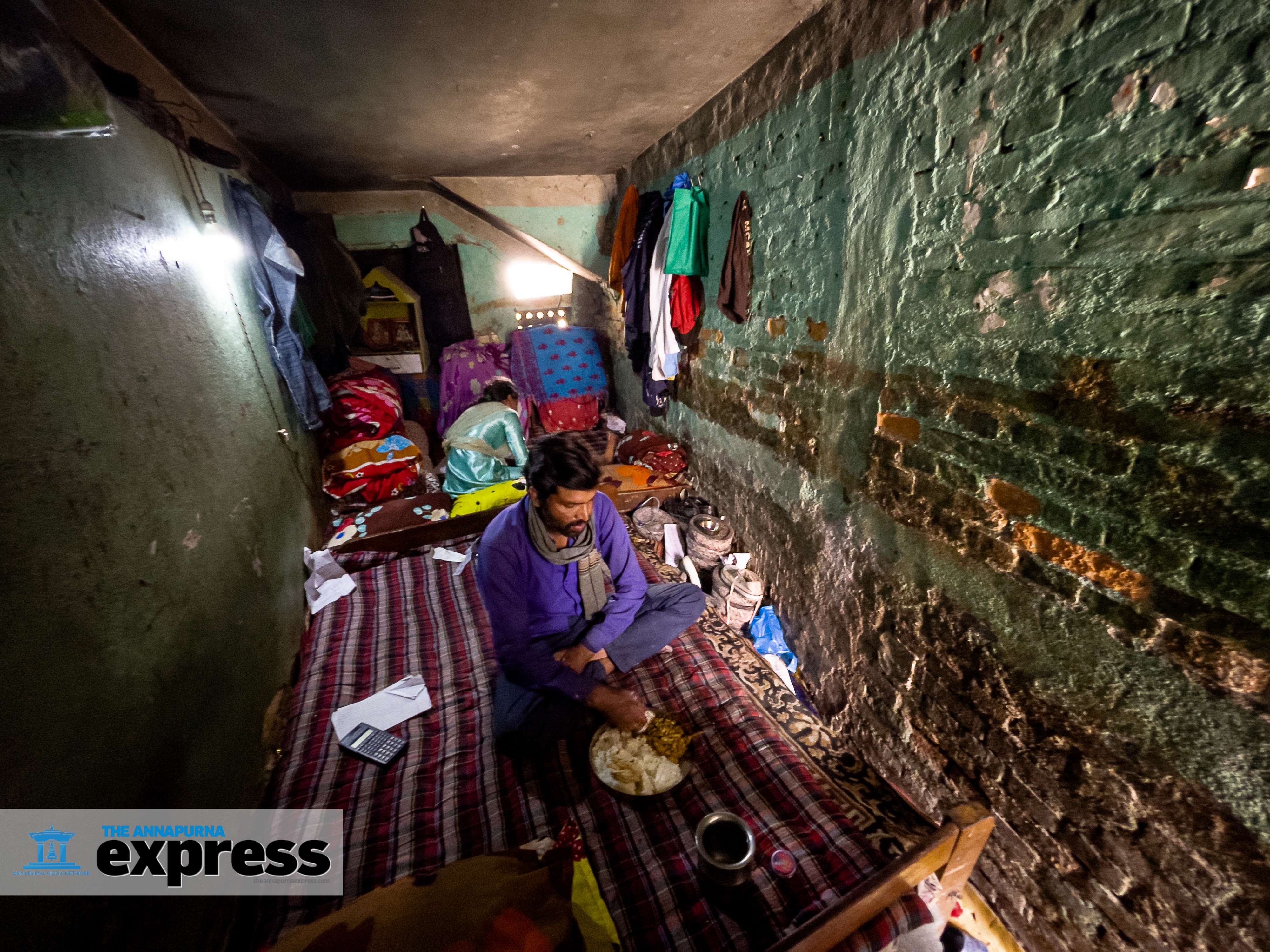
“My line of work doesn’t provide a steady source of income,” he tells me. “Sometimes I make Rs 10,000 in a day and other times nothing at all.” Still, he continues because he has no other skills.
Kushbaniya gets the stones for his products from Birgunj in Parsa district. “They have to be transported in trucks, and it is my job to turn them into mortars and pestles using my chisel, hammer and my wit,” he says. “It takes up to three days to create one pestle. Their price depends on the work I have to put in.”
